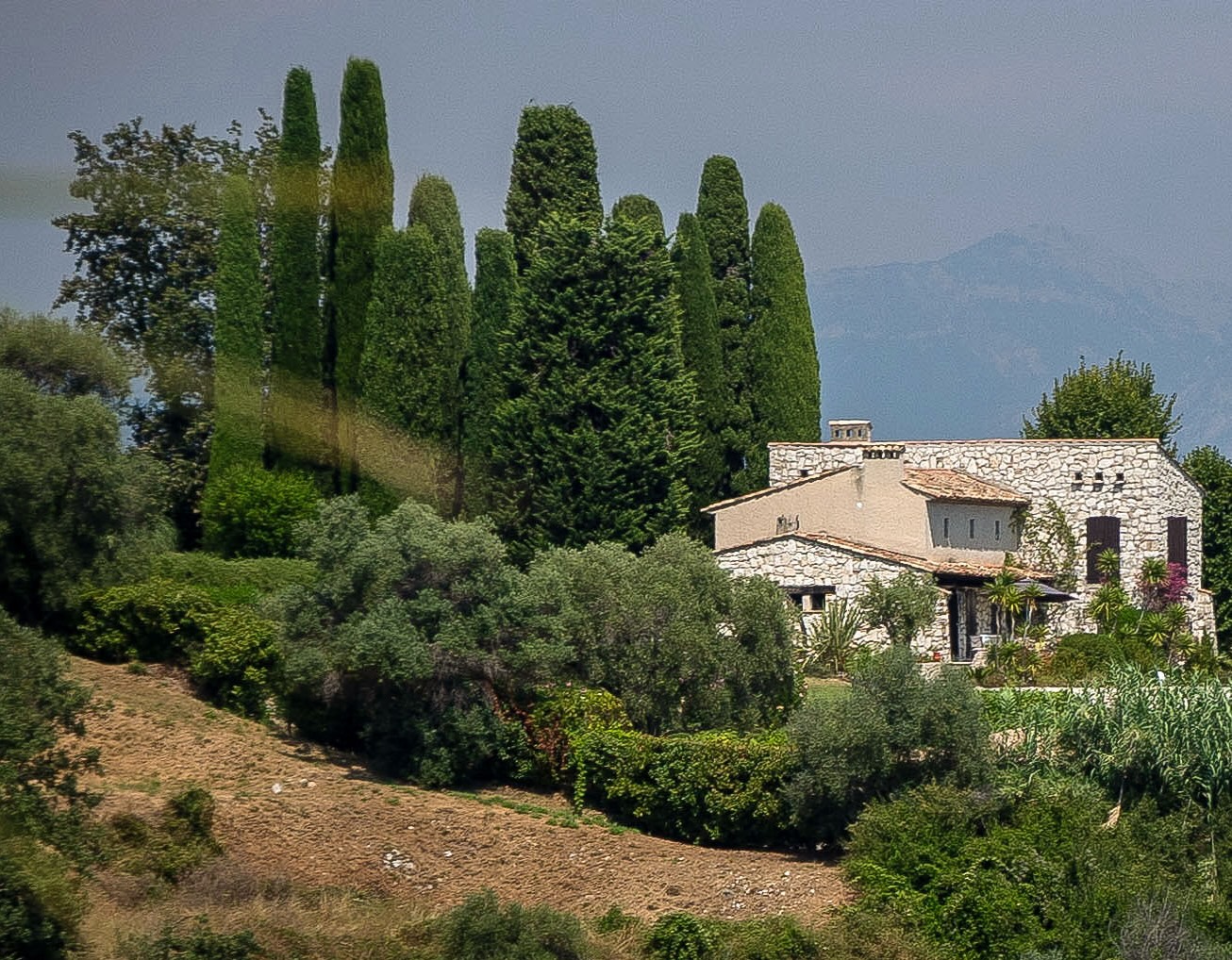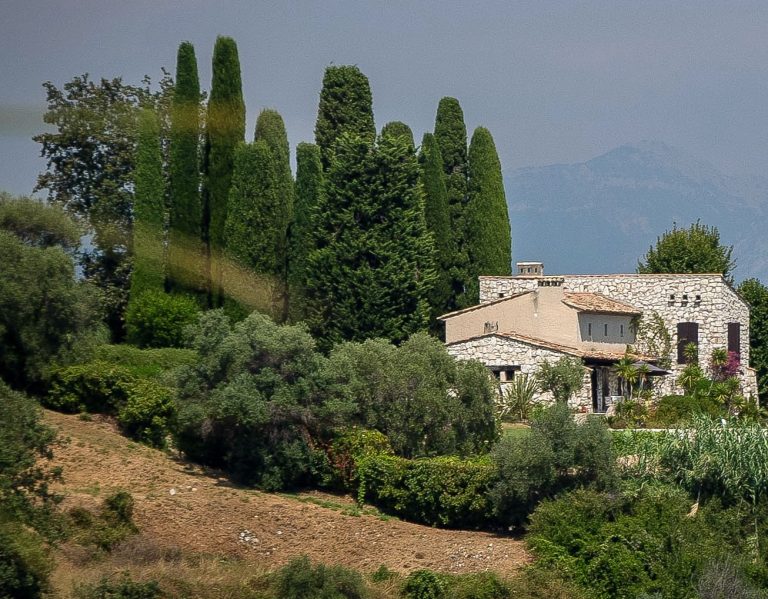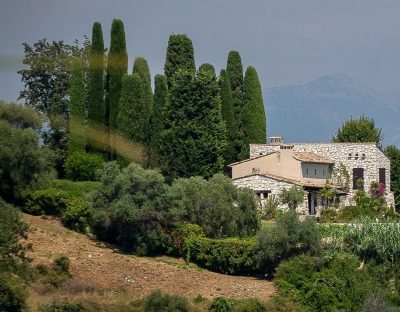Mária Benedikovičová (Denník N)
Photo: Denník N – Tomáš Benedikovič 2024-12-03
Mária Benedikovičová (Denník N)
Photo: Denník N – Tomáš Benedikovič 2024-12-03
When Robert Fico’s then-minister responsible for financial and economic affairs made critical decisions on government contracts, a series of offshore transfers funneled millions to his friend’s company, some of which were used by his partner to purchase a luxury villa on the French Riviera.
The partner of the governor of the National Bank of Slovakia, Peter Kažimír, owns a villa on the French Riviera. Her family company purchased it for €1.5 million, which it borrowed from a Cypriot company belonging to Kažimír’s friend, Roman Fečík. The Investigative Center of Ján Kuciak (ICJK), in collaboration with Denník N and research from the Organized Crime and Corruption Reporting Project (OCCRP), has uncovered that the funds ultimately used to purchase the villa appear to have been initially funneled into this chain of companies by a firm led by oligarch Jozef Brhel.
Documentation of the transactions suggests that the money was not returned to the oligarch. Moreover, they took place at the peak of the extensive corruption case called Mýtnik. Additional transactions uncovered from the Cypriot company of Kažimír’s friend occurred when Jaguar Land Rover was deciding on an investment in Slovakia, and Kažimír was acting Minister of Economy.
Peter Kažimír, the former finance minister for ruling party Smer and current head of the National Bank, recorded a video in October in which he described Denník N‘s information about his partner’s villa and the €1.5 million loan from the Cypriot company Tyree Trading as “propagandistic sewage.” However, he did not mention details about the property. Nor did he say where the money for the villa came from: “I have absolutely no reason to comment on the financial circumstances of the mother of my children,” he declared.
Matúš Šutaj Eštok, Slovak minister of interior and the chairman of the junior coalition party Hlas, also published a video in Kažimír’s defense, talking about a “media hunt” and accusing the newspaper of aiming to drag Kažimír “through a thicket of fabrications, conspiracies, and outright lies.”
ICJK and Denník N, with research from OCCRP, obtained company documents from the Cypriot commercial register, as well as from registries of other tax havens, which suggest that the money for Kažimír’s partner’s villa in the town of Vence, France came from Jozef Brhel Sr., an oligarch close to Prime Minister Robert Fico’s Smer party.
It was Brhel’s company that, at the very beginning in July 2013, provided a loan of €2 million to the Cypriot company Tyree Trading, owned by Kažimír’s friend Roman Fečík. The documents indicate that Brhel’s companies most likely did not get the loaned money back. The Cypriot shell company Tyree Trading Limited had previously surfaced in connection with Kažimír. However, its owner was not publicly known.
These complex transfers took place at the same time as the Slovak Financial Administration was procuring IT systems worth millions of euros in a classified procurement process, which are today the subject of indictment in the Mýtnik corruption case, in which oligarch Brhel is on trial. According to the indictment, he, along with other persons, was involved in overpriced software contracts used to allegedly defraud the state of €45 million.
In 2013, the Financial Administration was deciding on a supplier for new IT systems. Brhel was apparently interested in ensuring that the contract was awarded to the company Allexis, owned by businessman Michal Suchoba, who today appears as a cooperating defendant.
This would not have been possible without the approval of Peter Kažimír. As Minister of Finance, he had to approve the purchase. Testimonies from Suchoba and another cooperating defendant, former head of the Financial Administration František Imrecze, indicate that Kažimír had a problem with Suchoba.
Kažimír allegedly he changed his opinion only after intervention by oligarch Brhel, and around the same time as, according to our findings, Brhel’s Cypriot company Beside Investments Limited lent €2 million to Tyree Trading, behind which stands Kažimír’s friend Roman Fečík. That company subsequently lent €1.5 million to the French company Merey de Taude, owned by the family of Kažimír’s partner, for the purchase of a villa on the French Riviera. Transactions described in the financial statements suggest that the money was never returned to Brhel’s companies. It disappeared in a web of transfers and offsets among other companies in the USA and the British Virgin Islands.
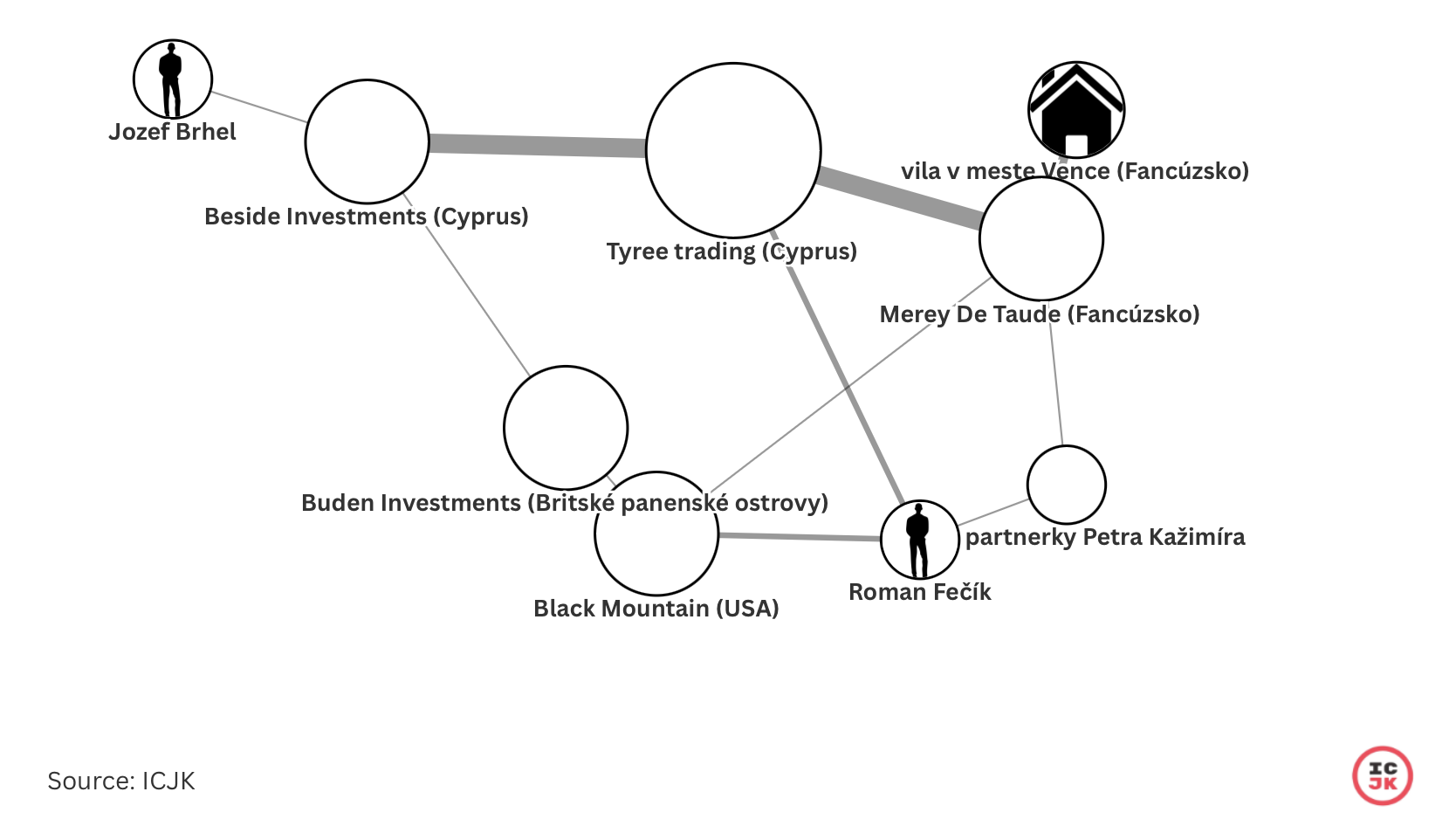
The Cypriot company owned by Kažimír’s friend repeated similar transactions. In 2015, it borrowed €1 million from a company from the British Virgin Islands, Raachje Trading & Investment Co. Ltd. Documents from the Panama Papers suggest that it was owned by the Maltese company Stratos Holding, linked to businessman and former SDKÚ politician Ondrej Ščurka.
In a telephone interview, Ščurka refused to comment on our findings but did not deny the transactions. Kažimír’s friend Roman Fečík and the governor’s partner, Katarína Korecká, did not respond to our questions, nor did Jozef Brhel Sr. Meanwhile, Jozef Brhel Jr. says that he never came into contact with the mentioned companies. (Read the full statement of Jozef Brhel Jr. in Slovak.)
Peter Kažimír sent only a brief statement through the National Bank of Slovakia’s spokesperson: “I repeat that I do not own any property abroad. I was not and am not the owner or co-owner of the companies you are asking about. I was not and am not the ultimate beneficial owner of these companies, and I have no knowledge of transactions between them.”
Kažimír is a witness in the Mýtnik case. He is also on trial in another case for a bribe of €48,000, which, according to the indictment, he gave to former head of the Financial Administration František Imrecze, who implicated him. But the case is expected to be closed as a result of a shortening of the statute of limitations, the result of an amendment to the Criminal Code adopted by Fico’s government.
Kažimír vs. Suchoba and Brhel
Let’s return to the Mýtnik case and recall what was happening in 2013! The Slovak Financial Administration, headed by František Imrecze, wanted to purchase information systems to make tax collection more efficient. At the time, Slovakia was governed by a single-party Smer government, and Peter Kažimír headed the Ministry of Finance, which was also responsible for the Financial Administration.
Businessman Michal Suchoba, a longtime friend of Imrecze, wanted to obtain the million-euro contract for his company, Allexis. However, Minister Kažimír was against it.
“Imrecze returned from Mr. Kažimír saying that Allexis and myself would never supply information systems to the Financial Administration,” Suchoba testified in court.
Both he and Minister Kažimír agreed that the minister had a negative attitude toward him, as Kažimír testified as a witness in the Mýtnik case. However, the cooperating defendant and the governor of the NBS remembered subsequent events differently. Suchoba claimed that the message from Kažimír continued by stating that he should contact oligarch Jozef Brhel, who had a solution to the situation.
In May 2015, Peter Kažimír was not only the Minister of Finance but also the acting Minister of Economy. He took over the position at a crucial time: the car manufacturer Jaguar Land Rover was deciding where to place its factory, and Slovakia offered the investor the city of Nitra.
According to his own words, Suchoba went to see oligarch Brhel in an office on the tenth floor of the DoubleTree by Hilton hotel in Bratislava.
“He told me that Kažo [Kažimír] had some problem with me from the past, but he could solve it by entering the company Allexis, and we would divide the shares as 40 percent for me, 40 percent for Brhel, and 20 percent for Kažimír,” Suchoba testified in court. He rejected the offer, perceiving it as an insult.
Negotiations between Brhel and Suchoba continued until he eventually convinced the oligarch to split the company Allexis in half, thus excluding Kažimír. “At the end of the day, the whole entry wasn’t an entry; it was 50 percent racketeering,” Suchoba said in court regarding the Brhels.
According to Suchoba, they agreed on a scheme and later set up a network of companies through which they would transfer the state money obtained from Allexis to Cyprus and Malta. Cypriot company Prenmor Finance Limited, behind which stood the Brhels, became part of the scheme.
Procurement eventually took place under a classified procurement with direct assignment. The contracts were won by the company Allexis, which, according to the indictment, Brhel used to enrich himself at the state’s expense.
Kažimír claimed in court that he did not know Brhel had a stake in Suchoba’s company or that percentages were being requested on his behalf. However, he approved the budget measure for the purchase of IT systems from Allexis.
How Allexis managed to secure lucrative million-euro contracts with the Financial Administration despite Kažimír’s opposition was not further discussed in court proceedings, as the former Finance Minister is not among the defendants.
Kažimír did not respond to the question of what led him to change his opinion and drop his opposition to Suchoba and Allexis, who earned significant sums from classified state tenders.
Shuffling with Allexis
The key company for transferring money from the Financial Administration’s contracts to Cyprus and Malta was Allexis Group, which, according to the agreement between Suchoba and the Brhels, was established in the Czech Republic. They applied for the registration of Allexis Group in the Commercial Register on July 19, 2013; the court registered it on July 26, 2013.
About two weeks before that, on July 10, 2013, the Cypriot company Beside Investments Limited, whose sole shareholder at that time was Jozef Brhel, transferred €2 million as a loan to the account of the Cypriot company Tyree Trading Limited.
According to documents from the Cypriot register, its ultimate beneficial owner was Roman Fečík, a friend and university classmate of Peter Kažimír. Denník N wrote about him, noting that he has appeared for years in transactions connected to the former minister and current governor of the NBS.
Fečík’s Tyree Trading Limited subsequently lent €1.5 million to the company Merey de Taude. This French company is owned by the family of Kažimír’s partner, Katarína Korecká. Fečík sent €1.5 million from the Cypriot shell company on January 7, 2014, eleven days after the Financial Administration signed a contract with Allexis.
€1.5 Million Went to France
After receiving €1.5 million into the company’s account, Kažimír’s partner immediately transferred the entire amount to a French notary with a note that it was for the purchase of real estate.
Shortly thereafter, in February 2014, the French land registry registered the company Merey de Taude as the new owner of a lucrative villa with a swimming pool and a large plot of land. According to data from the French land registry, the villa still belongs to Merey de Taude.
The property is located in the small, peaceful town of Vence in the hills of the French countryside on the French Riviera, from where you can see all the way to the sea. It’s less than 10 kilometers to the popular Riviera coastline in Nice.
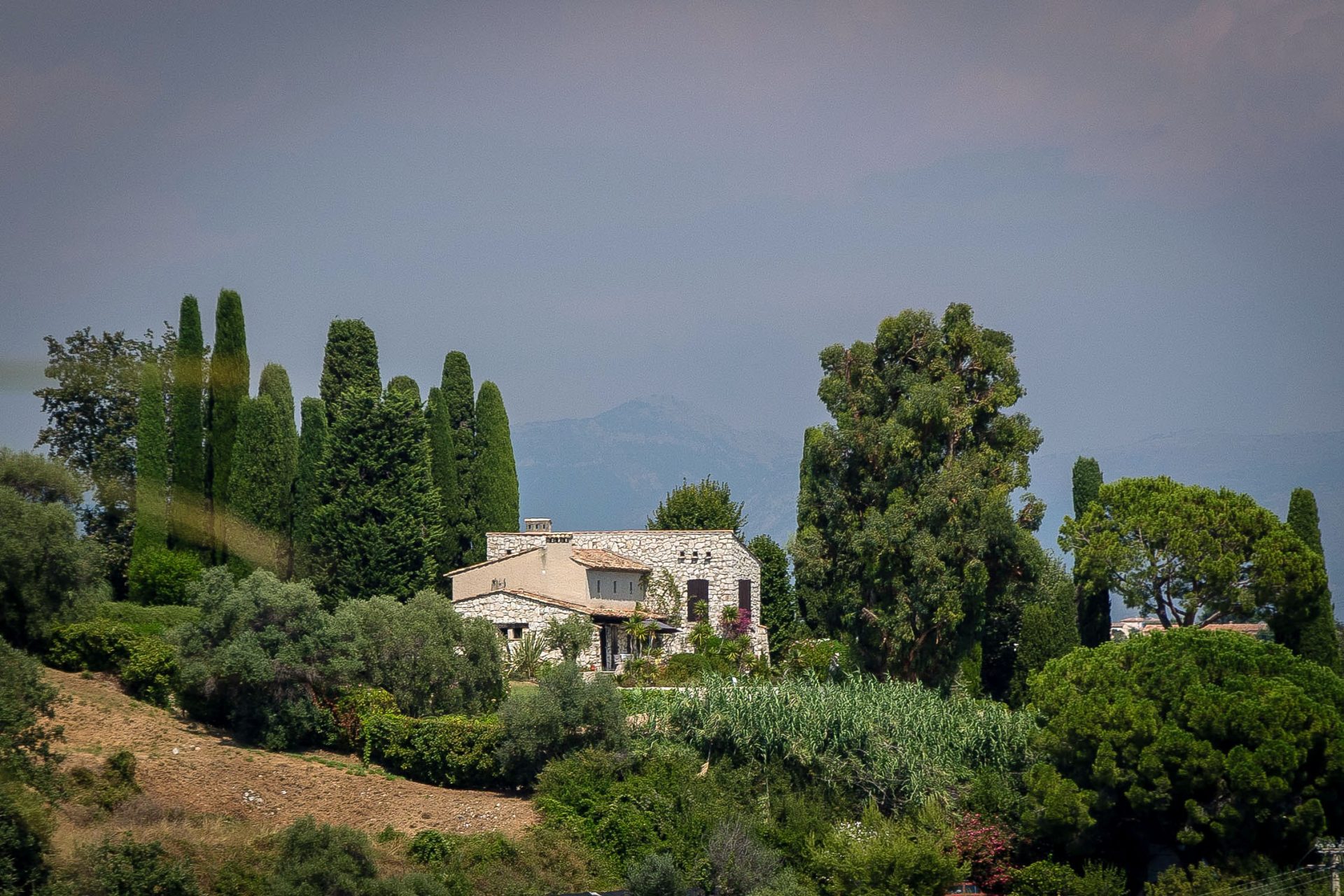
The luxury villa on the French Riviera which belongs to the family business of Petr Kažimir’s partner. Source: Denník N – Tomáš Benedikovič
The loan originally provided by Brhel was to the shell company Tyree Trading Limited, linked to Kažimír. The money Tyree provided to Kažimír’s partner ended up—after a web of transfers between several companies—in the company Black Mountain Investments, based in New Jersey, USA. This company is also owned by Kažimír’s friend Roman Fečík.
According to documents obtained from Cyprus’s registry, Tyree Trading Limited concluded an agreement with Black Mountain Investments on December 31, 2014, on the mutual offsetting of receivables. With this step, Fečík’s companies erased the debts they owed each other.
Tyree Trading “sold” the receivable of €1.5 million, which the company of Kažimír’s partner’s family owed it, to Black Mountain Investments for the same amount: €1.5 million. At the same time, Tyree Trading owed €1.5 million plus interest to Black Mountain Investments. This money originally belonged to Jozef Brhel’s company, which transferred the loan to Black Mountain. Tyree Trading and Black Mountain thus owed each other €1.5 million, and by offsetting the receivables, these debts were simply “written off.”
Cypriot documents suggest that the loan money was not returned to Brhel’s companies. Didn’t they miss such a large sum of money?
A key step occurred in Beside Investments when Brhel left the company at the end of 2015. Suddenly, it no longer sought the return of the money. Through a simple accounting operation, it wrote off the receivable.
On the very next day after Brhel’s departure, January 1, 2016, the company renounced receivables of more than €4.6 million that it had toward its affiliated company Buden Investments during the oligarch’s era. It was Buden Investments that, in the web of transfers, first took over the loan originally provided by Brhel to the shell company Tyree Trading Limited — traced back to the owner Fečík, Kažimír’s friend. Buden Investments transferred the receivable to Fečík’s company Black Mountain Investment, meaning Fečík no longer owed money to Brhel but to himself.
Fečík, oligarch Brhel, and Kažimír’s partner did not comment on the above transactions. Kažimír sent only a brief statement denying any relationship with the aforementioned companies.
The Cypriot Shell Company Also Appeared During the Construction of Jaguar
The purchase of IT systems was not the only state contract in which Tyree Trading Limited, the Cypriot company of Kažimír’s friend Roman Fečík, surfaced. The same Cypriot firm also borrowed money from a company whose owner sold land to the state in the very place the Jaguar Land Rover car factory stands today. The Ministry of Economy was led by Peter Kažimír at that time.
Initially, it was not clear that the luxury car factory would be located in Slovakia. When the British investor announced plans to expand production to Eastern Europe, three countries were mainly mentioned—Hungary, the Czech Republic, and Poland—with Poland considered the frontrunner. Slovakia only started being mentioned later.
At the time, the Polish government and some media talked about Jaguar’s investment in Poland as if it were already certain.
“There are various disinformation campaigns. I wouldn’t pay attention to what the Polish, Czech, Hungarian, or Slovak media are saying. The essential thing is whether Slovakia is in the game or not. I think Slovakia is still in the game,” Slovak Prime Minister Fico declared at the end of May 2015 on the radio show Braňo Závodský Naživo on Rádio Expres. At that time, the acting Minister of Economy was Peter Kažimír.
The Finance Minister was entrusted with managing the second ministry on May 6, 2015, after Smer Minister Pavol Pavlis resigned following media reports that contracts in the ministry were being awarded to his brother-in-law’s company. In that same month, it was first mentioned in media reports that Jaguar Land Rover cars could be manufactured in an industrial park near Nitra. Kažimír was Minister of Economy until June 16, 2015, when he was replaced by State Secretary from the Ministry of Finance, Vazil Hudák.
Kažimír held two ministerial positions for just under a month and a half. In that time, a million-euro transaction occurred — one that, yet again, involved Roman Fečík. On May 11, five days after Kažimír was entrusted with leading the ministry that oversees major investments in the state economy, €1 million arrived in the account of his company Tyree Trading Limited from Raachje Trading & Investment Co. Ltd. This latter company was registered in the British Virgin Islands, another tax haven.
According to the Panama Papers, the shareholder of Raachje Trading & Investment Co. Ltd. was the Maltese company Stratos Holding Ltd., which had several subsidiary companies, including the Slovak LLC Stratos Properties, the managing director of which is ex-politician Ondrej Ščurka.
The government announced on August 11, 2015 that Jaguar Land Rover would ultimately come to Nitra. The state purchased part of the land where the car factory was to be built from Ondrej Ščurka, and specifically from his company Nitra Invest s.r.o. The contracts for the purchase—and thus the final price Slovakia paid—were not published. However, in the company’s accounting for 2017, almost €9 million appears for the sale of real estate.
Ondrej Ščurka was previously the chairman of the party SDKÚ’s district organization, and during Iveta Radičová’s government (2010-2012), his company Nitra Invest s.r.o. was alleged to have charged tax authorities in Košice too much for rental space. After the information became public, the head of the tax office, an SDKÚ nominee, resigned.
On August 11, 2015, Prime Minister Fico announced that his government and “Jaguar Land Rover have signed an important document, which is a milestone on the way to obtaining a huge investment in the automotive industry.” On that very day, Raachje Trading & Investment Co. Ltd., a company from a tax haven linked to the owner of the land where the car factory was to be built, transferred its receivable from Tyree Trading Limited to Black Mountain Investment LLC.
The €1 million that Tyree Trading Limited, owned by Kažimír’s friend Fečík, borrowed from Raachje Trading & Investment was, from that day on, owed to another company—Black Mountain Investment LLC, also owned by Roman Fečík.
Ondrej Ščurka refused to comment on questions about the transactions in a telephone interview but did not deny them: “I am not a public official. Thank you very much, and don’t call me again. Don’t bother me, okay?”
Research for this investigative text was provided by the Organized Crime and Corruption Reporting Project (OCCRP ID).
The article was originally published on ICJK.
Subscribe to “Goulash”, our newsletter with original scoops and the best investigative journalism from Central Europe, written by Szabolcs Panyi. Get it in your inbox every second Thursday!

